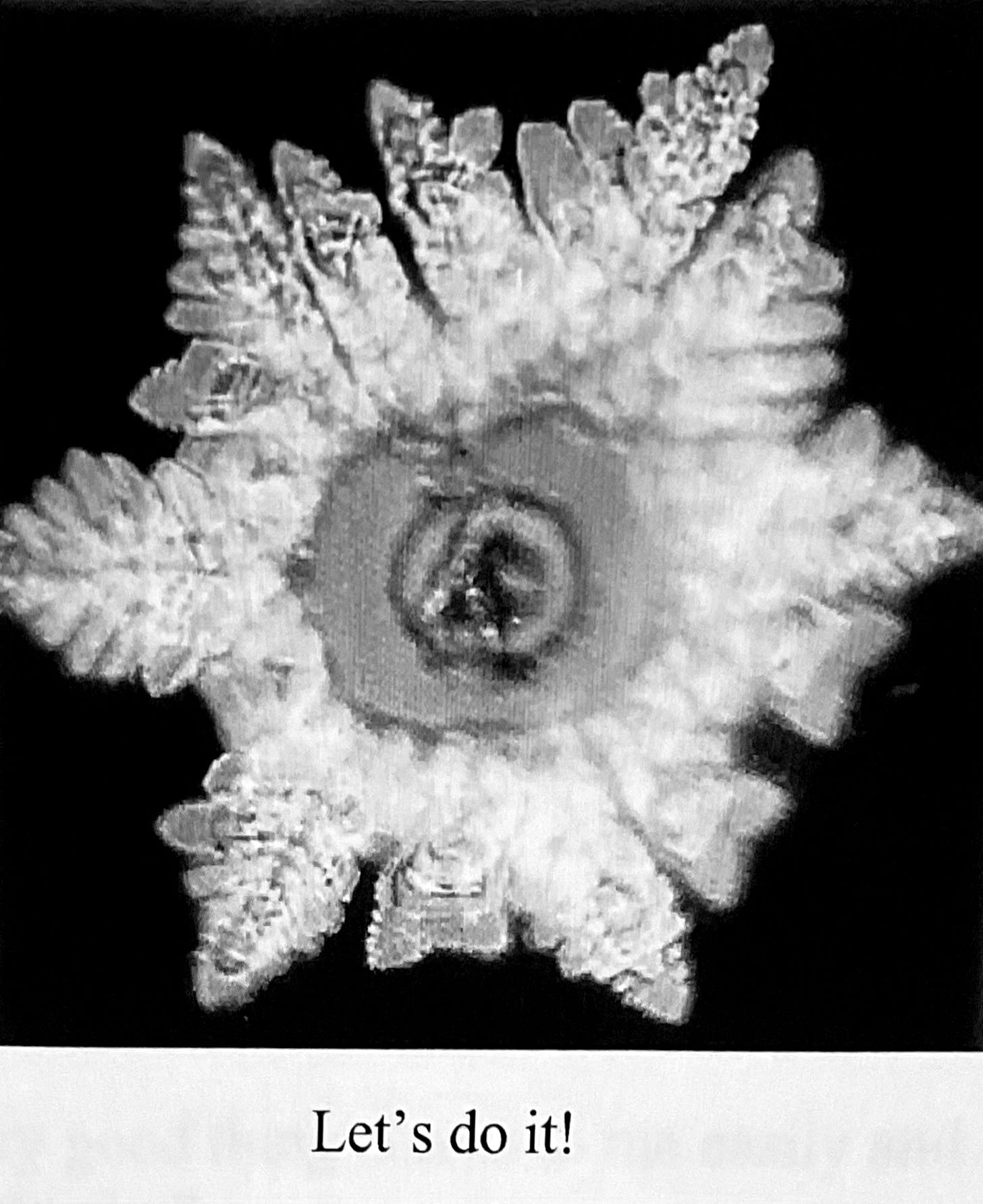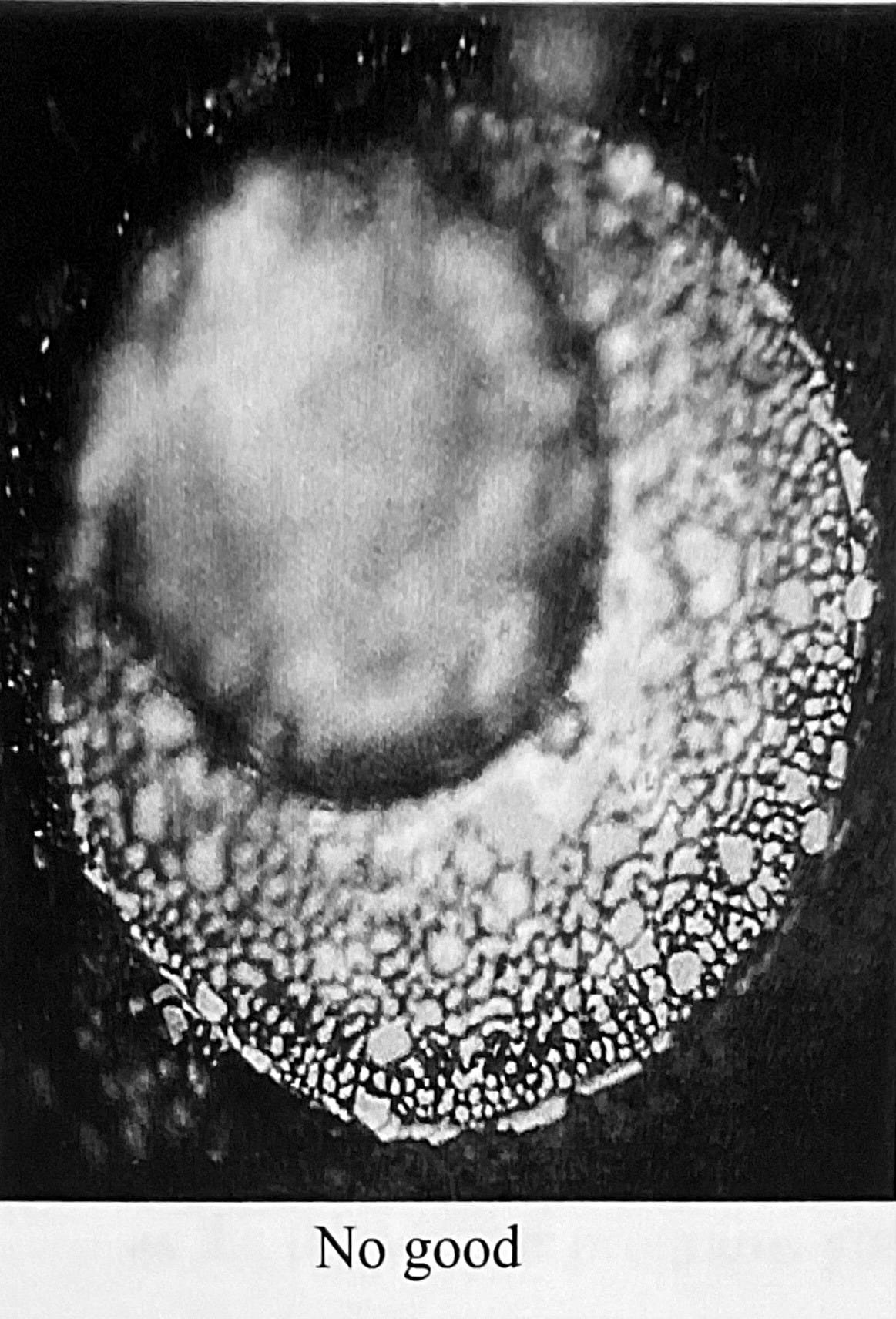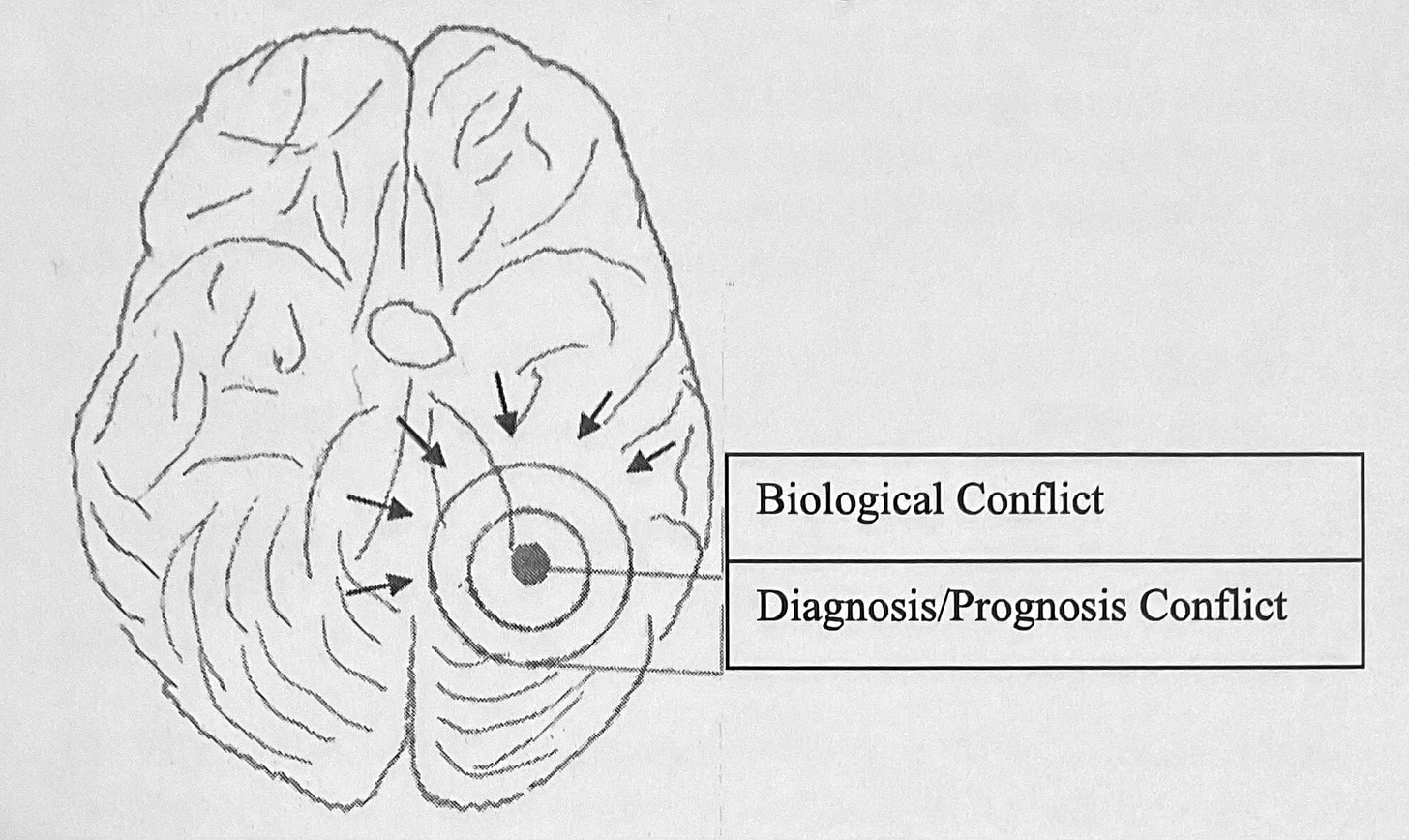Words have a way of creating your reality both in terms of what you say and what you hear. Words can equally empower you or disempower you.
Please choose your words wisely and carefully.
If you don’t believe words are impactful, take a moment to think about the words you long to hear from a significant other like:
“I love you.”
“I’m proud of you.”
“You’re beautiful.”
“I want you.”
“I believe in you.”
What you don’t say can be as damaging as what you do say.
Words, while invisible, carry a frequency. They have a specific vibration regardless of whether they are used intentionally or not. Knowing this is why I take offense to anyone’s use of self-deprecating humor. It’s just NOT funny when you know how damaging it is to the speaker and anyone within earshot.
Our thoughts also have the same power as evidenced in the work done by Dr. Masaru Emoto, author of The Hidden Messages in Water.
Here are a few images from his work where he has captured how water molecules are affected by thoughts, words, and feelings. When molecules of water are frozen, they form crystals reflecting the frequency it absorbed depending on what had been directed toward it.
Compared to:
Please take some time to visually take in these images.
Now consider the fact that the human body is about 60% water, what are the possible significance of words on your health and well-being?
I’m sure you’ve heard of the placebo effect.
The definition of “placebo effect” is the beneficial effect produced by a placebo drug or treatment, which cannot be attributed to the properties of the placebo itself, and must therefore be due to the patient’s belief in that treatment.
For example, a patient is given a sugar pill and told by a person of authority, like a doctor, that it will benefit them and produce certain results. The patient’s belief in what they’re told, and *how they receive the information*, in turn, produces favorable results which cannot be attributed to the pill itself in any way.
Feel free to google this. There is much science behind this that shows and supports how impactful words and thoughts are on organisms.
By the same token and not as widely discussed is the nocebo effect. When a patient’s negative expectations for a treatment cause the treatment to have a worse effect than it otherwise would have. For example, when a patient anticipates a side effect of a medication, they can experience that effect, even if the medication is an inert substance. (Source: Wikipedia)
The patient’s mindset, how they receive information, and their beliefs and expectations influence their results. i.e. create their reality.
But we mustn’t forget the person delivering the message and their role. It’s because they have some authority, expertise, or other significance to us that we put trust in their WORD.
I say this as a reminder if you are such a person. Please choose your words wisely and carefully and be aware of how you deliver your message.
This is how what we say can either empower or disempower others. Words can harm or heal.
Please consider the weight you give others when you seek their advice, counsel or approval. You are your best authority.
Let’s consider doctors. There was a time when doctors were viewed as Gods - the givers or takers of life. This belief has been passed on genetically for generations. Doctors are still held in high regard and are seen as authorities. But we should remember they are human and have limitations to what they know.
How you see your doctor and his/her opinion can impact your prognosis.
Let’s consider a patient who has numerous symptoms, but no reasonable medical justification for them. This person undergoes multiple tests without any results or clarification as to the cause of their symptoms. This person undergoes all forms of recommended treatment for the symptoms without any improvement in their health. This goes on for an extended period of time with no or little support from family, friends or coworkers. This person’s stress level is excessively high and their physical energy to manage their day-to-day life is very low. Finally, after much time, the person is given a diagnosis by a specialist:
“You have fibromyalgia and can expect to be in a wheelchair in the next 3 to 6 months.”
This person is there to receive a diagnosis but in one swoop statement, they receive both a diagnosis and a prognosis. Remember the difference between a placebo and nocebo effect? The doctor, based on his knowledge, has placed his patient on a certain side of statistics. This is his belief. It is not a fact.
How the person receives this statement as fact, without question, will determine their reality. A statement like this sets up their brain to accept the diagnosis of fibromyalgia to equate a prognosis of lifelong limited mobility, restricted to a wheelchair, permanently and this has real neurological implications.
Brain scans of a disease show a neurological event - think earthquake - that has an epicenter and a secondary shockwave. A disease is a biological conflict. It’s not irreversible. It’s self-contained but still accessible. (See the diagram below)
When a patient receives a diagnosis with a negative prognosis and they accept it as fact, there’s an immediate neurological event, like an aftershock of an earthquake that encapsulates the biological conflict and cuts off the neuro-pathways to receive treatment. A diagnosis becomes a prognosis.
The analogy I used when I worked with clients and showed them brain scans that demonstrated this phenomenon, is of an egg. The biological conflict (a disease) is like the yoke and egg white. The yoke represents the neurological event of the disease and is self-contained yet is still accessible through the egg white. The egg whites support and nourish the yoke. Meaning it is still capable of sending and receiving neurotransmitters.
However, when a diagnosis becomes a prognosis a third sphere appears in the brain imaging and is like the eggshell. It is impenetrable. It is incapable of receiving neurotransmitters and the disease gets locked in place. Treatments will not be received by the organism.
Now think about a patient who receives the diagnosis of cancer. More and more people are surviving and recovering from cancer yet it remains one of the scariest diagnoses to receive.
If you understand the above, you will understand that the question becomes where did the attending physician place his or her patient statistically - on the winning or losing side? How was the diagnosis delivered? How did the patient receive their diagnosis? In some cases, a diagnosis may be received like a death sentence and this is when a diagnosis becomes a diagnosis/prognosis conflict as you can see in the brain image above.
Please keep in mind that statistics are just statistics. You are NOT a statistic and your mindset is important. More important than your diagnosis.
The story of the person who was diagnosed with fibromyalgia is my own story. I was diagnosed with fibromyalgia in my early 20’s and that was exactly how the diagnosis was delivered to me.
I very clearly remember HOW I received my diagnosis. It was with a tremendous sense of relief as I had finally been given a name to the mysterious symptoms I was experiencing. It was confirmation of my reality. However, I rejected his prognosis in the same instance because it is in my Human Design to question authority figures. I did not accept his prognosis. I firmly believed once you can name a problem, a solution exists, and it was just a matter of time for me to find it.
I received my diagnosis of fibromyalgia in 2002. By 2004, I had completely healed from fibromyalgia. In 2005, my husband and I constructed our home. It was one of the most rewarding experiences of my life. I danced many a jig on the scaffolding in triumph over that diagnosis and prognosis.
Now It's Your Turn
Consider the messages you are receiving from the people in your life.
Consider the messages you have received from your parents and peers since childhood.
Consider the messages you tell yourself now as an adult.
Consider the words you say frequently to others.
Consider the nature of your thoughts about yourself or towards others.
Consider all the other sources that could potentially influence you positively or negatively such as what you watch on TV or listen to on the radio.
Eradicating negative thoughts is essential to your well-being and impacts the world around you. Your thoughts create your reality. The most important conversations you have are the ones you have with yourself!
Feel free to message me with your feedback or questions.














Love your ending “Considers” in the concluding “Now It’s Your Turn” … I keep several notecards with inspiring words I want to internalize, taped on the non-window & non-LED info display surfaces, around the driver’s seat of my big truck. I think I’ll make it a project to briefly glance at Now It’s Your Turn after the turn signal blinker stops, upon completion of a turn!!
One of the FOUR AGREEMENTS (from one of the almost infinite number of lists of aspirations that Buddhism loves to record & share)
BE IMPECCABLE WITH YOUR WORD
Speak with integrity
Say only what you mean
Avoid using the word to speak against yourself, or to gossip about others
Use the power of your word in the direction of truth & love
Thank you for the blessing of the reminder:
WORDS CAN HEAL OR HURT … so very fundamental … so very easy to forget
Impactful, Grace.